The site is a product of indiscriminate waste treatment in Indonesia. Since there are no formal rules for separating and sorting waste for recycling, most of it ends up there. About 60 to 70 percent of the landfill is organic waste, resulting in a foul smell that overwhelms the visitor long before they see the landfill.
The site, which is expected to reach full capacity by 2021, is rumored to be closed or drilled to extend its useful life as fuel.
Indonesia's plastic recycling rate is 10% and would be much lower if it weren't for the country's 3.7 million garbage collectors, 3,000 of whom work and live around the Bantar Gebang landfill, which collects and sorts thousands of tons of garbage from Jakarta.
"Without government initiative to build a circular economy, we depend on these people to get rid of our garbage," said Muharram Atha Rasyadi, an activist with the non-profit organization Greenpeace.
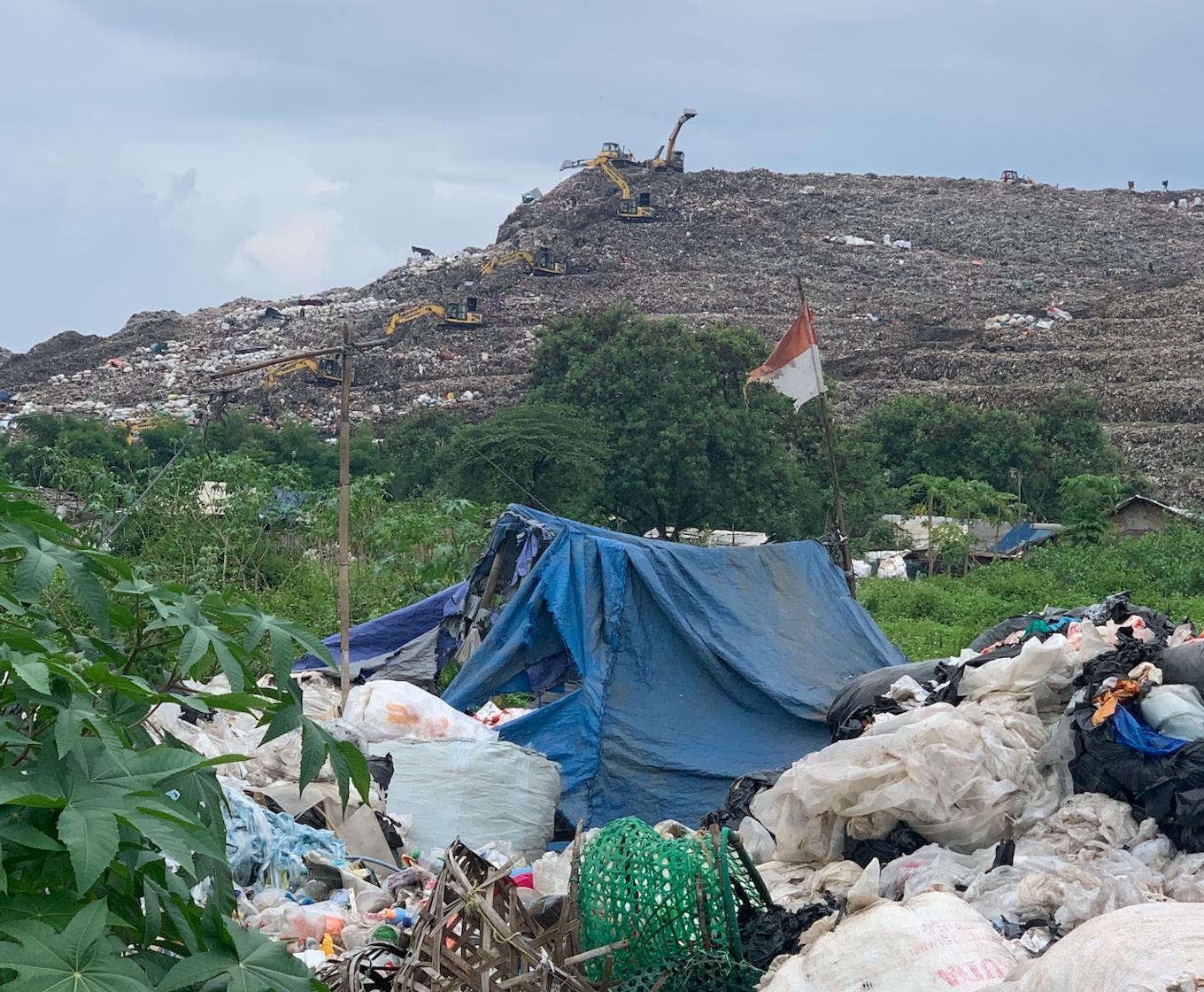
A makeshift tent with an Indonesian flag is strewn with unsorted rubbish under the landfill. Image: Robin Hicks/EcoBusiness
Among these people is Casnadi, 49, a "first collector" who works as a waste management system manager at the Bantar Gebang landfill. It takes waste from the landfill, sorts it and sells it to middlemen to recyclers.
Typically, a first-time collector will collect about 60 pounds of post-consumer waste each day. Less when it rains if the landfill is muddy. It is October, before the monsoon rains make life particularly difficult for the garbage collectors of Bantar Gebang.
Casnadi earns between IDR 100,000 (USD 6.40) and IDR 150,000 (USD 9.20) per day, depending on how much he can earn.
The most valuable items it collects are recyclable plastics, with polyethylene terephthalate (PET) being the sought-after type of plastic. The disposable bags used by Western packaging companies such as Unilever and Procter & Gamble to sell small-batch products to low-income families are useless and uncollectible.
"I came here because I needed to get an income. That was 22 years ago," Casnadi told Eco-Business.
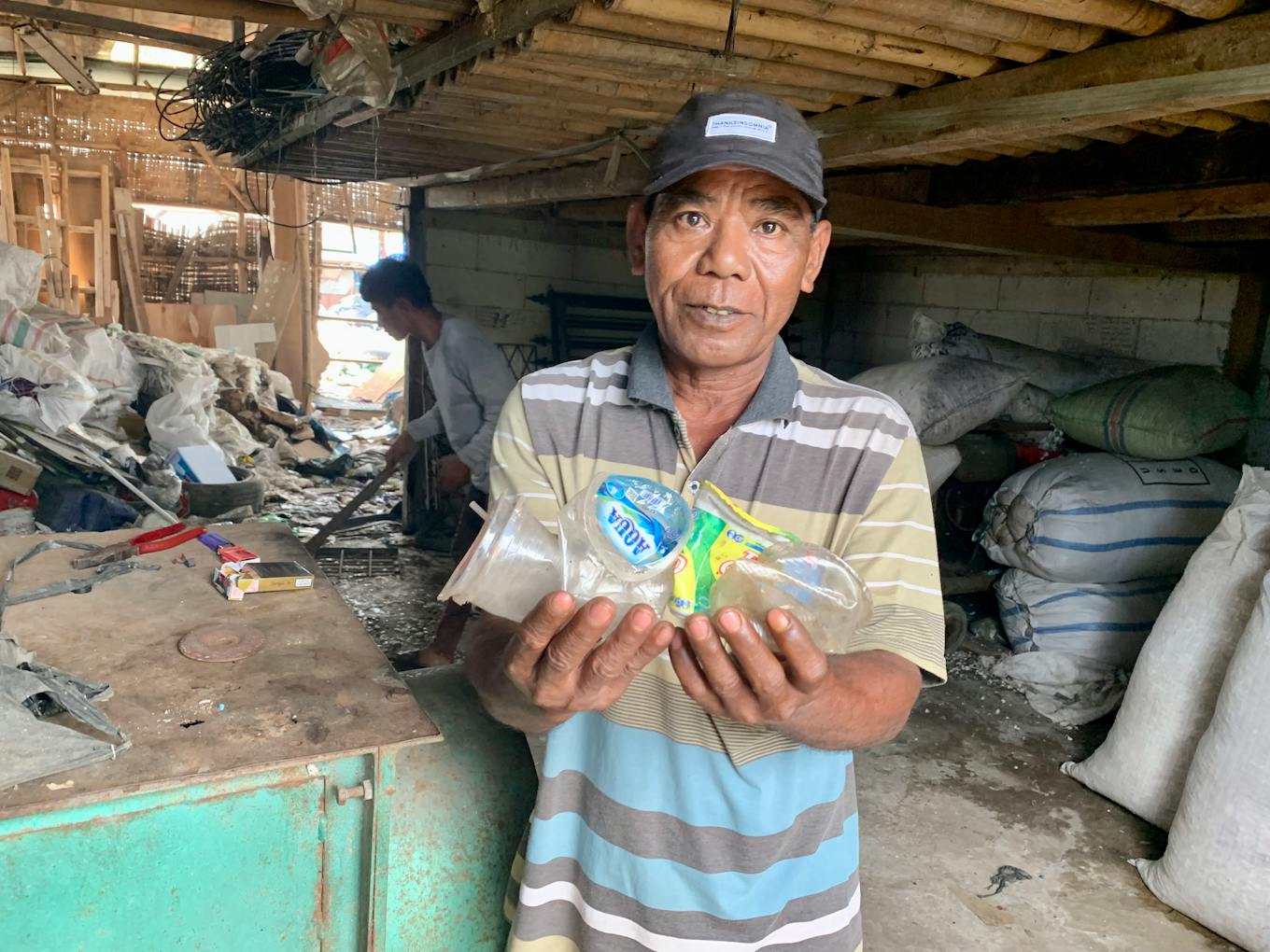
Casnadi (49), Banten's first collector, sorted the plastic drink cartons for recycling. Casnadi has lived and worked in the Bantar Gebang landfill for 22 years. Image: Robin Hicks/EcoBusiness
When asked about the biggest challenge of his job, Casnadi is pragmatic. “The market price [of recycled plastic]. Sometimes it's volatile and it affects how much we can earn," he said.
Casnadi said he hopes Indonesia will stop importing waste because plastic waste imported from abroad lowers the price of local plastic.
Indonesia became a dumping ground for large amounts of waste from the industrialized world when China banned the import of plastic waste from abroad in 2017. The following year, imports of plastic waste from Indonesia doubled.
“We do not have strong rules to protect our country from waste imported from developed countries. There are regulations, but they are not clear," says Greenpeace's Atha.
While waste collectors like Casnadi can recover some of the plastic and sell it to a recycling dealer, much of it is openly burned or dumped, ending up in rivers and eventually the ocean.
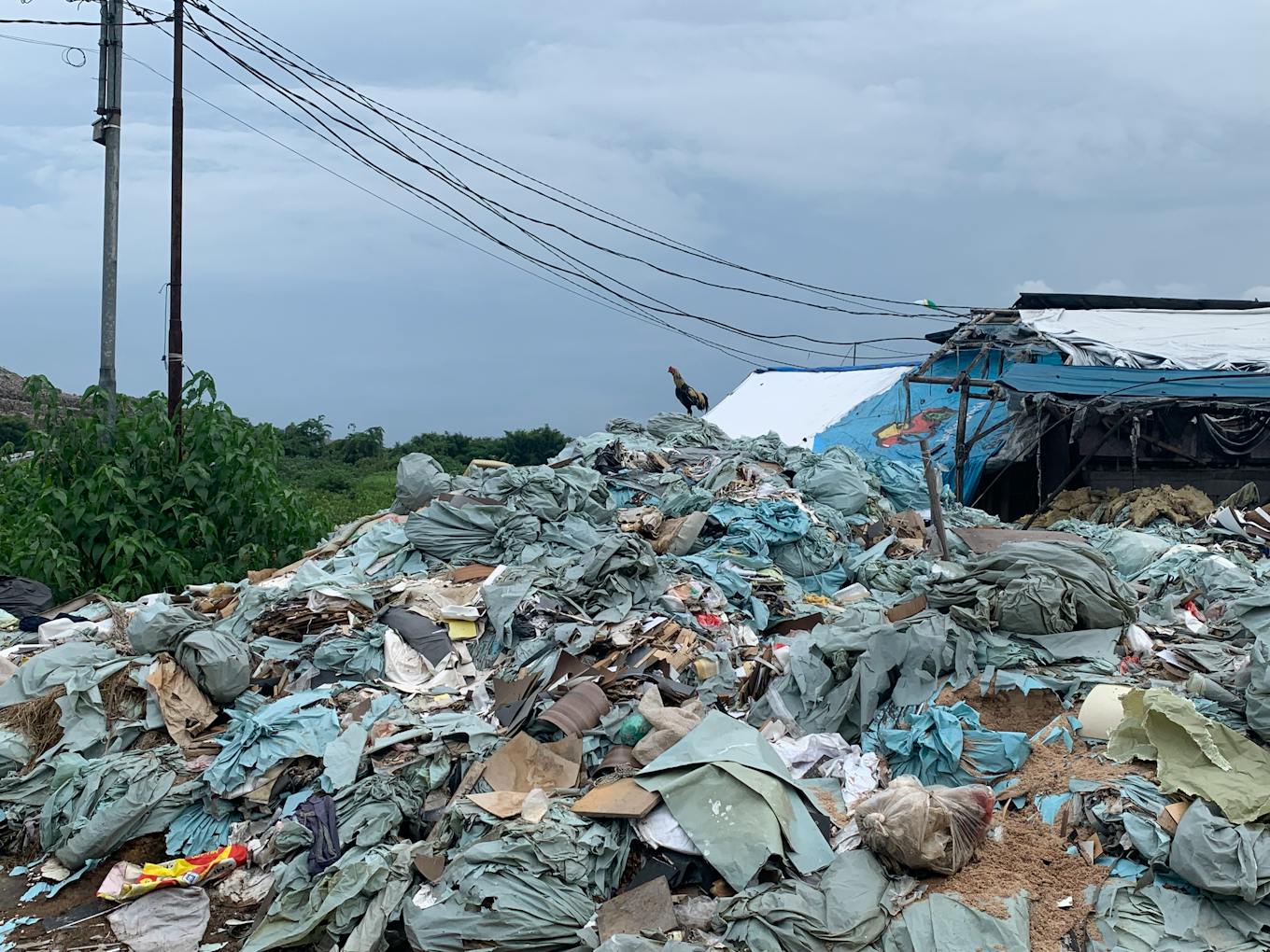
A rooster sits on a pile of rubbish at the Bantar Gebang landfill. Image: Robin Hicks/EcoBusiness
Indonesia is the world's second largest polluter of marine plastic after China, with more than 600,000 tonnes of plastic dumped into the sea each year, a rate that rose sharply during the Covid-19 pandemic, when shipments of plastic containers in line is. i shoot
While the practice is illegal, it is estimated that nearly half of all plastic waste generated in Indonesia is burned in the open. Burnt plastic produces cancer-causing toxins such as dioxins and furans . Open air dumps like Bantar Gebang release large amounts of methane, a powerful climate agent, and release toxins into soil and water supplies.
But breathing in burnt plastic or bathing in polluted water are not the main concerns of Bantar Gebang's garbage collectors. Tharmin, a waste collection coordinator who has worked at the landfill for 30 years, said his biggest concerns are the risk of injury from stepping on broken glass, lightning and falling bulldozers.
A garbage collector was recently injured by an overturned bulldozer at the landfill, said Tharmin, who wears sneakers and flip-flops to work.
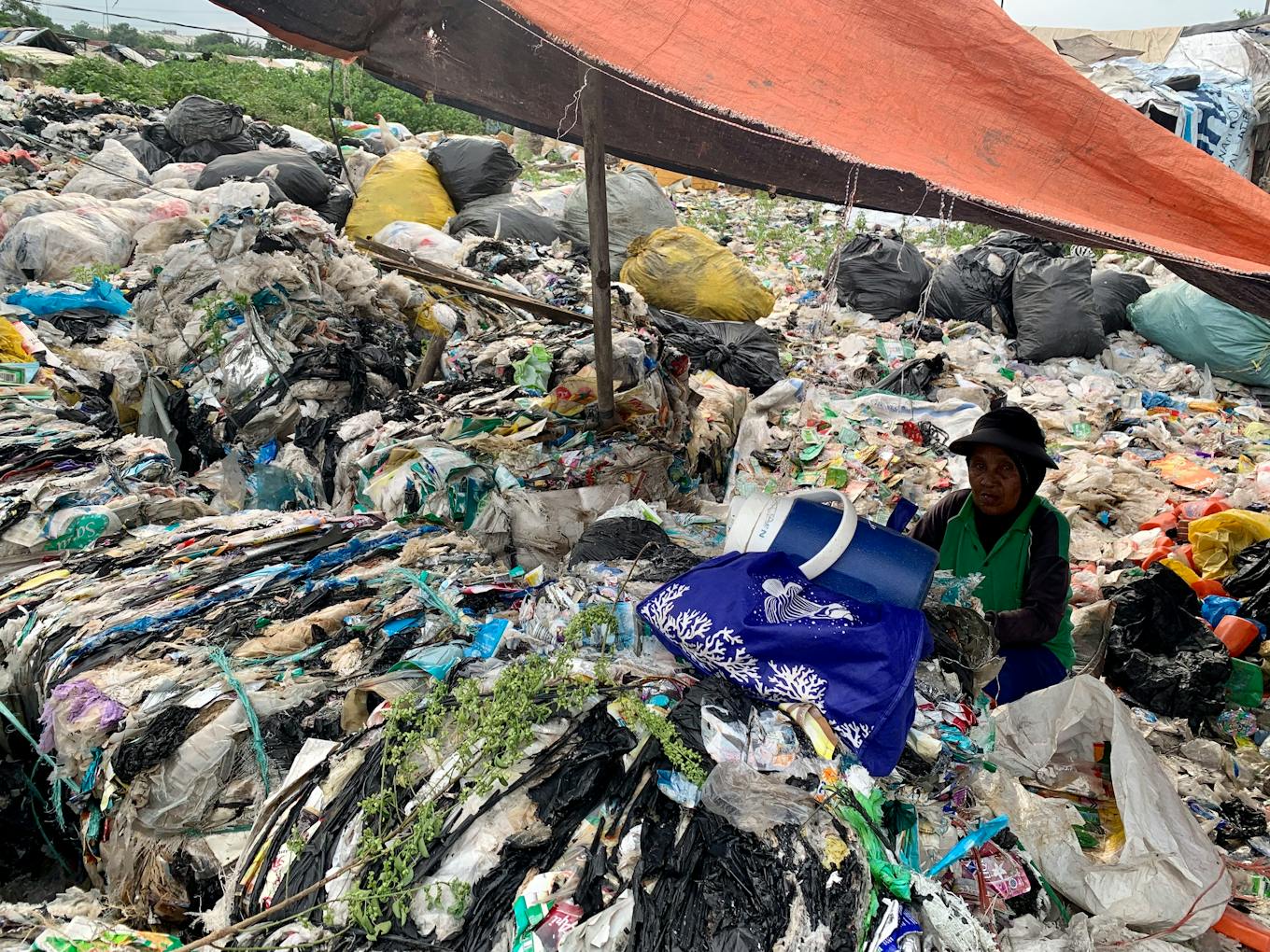
An elderly woman sorts plastic for recycling under the canopy of a tent at the foot of the Bantar Gebang landfill. Image: Robin Hicks/EcoBusiness
"Waste is a difficult and dangerous industry, but it is the only way to live for many people with little education," Tharmin told Eco-Business.
Tharmin gets up at 4:00 a.m., goes to pray in the mosque at the foot of the landfill, works all day collecting and finishes work at 5:00 p.m. before sunset.
While life is difficult for the waste pickers community, they are supported by the Indonesian Waste Pickers Union of Ikatan Pemulung Indonesia Bahasa Indonesia (IPI), which provides health education, legal support, child support and plastic price data.
"We look forward to each other. We are like family," says IPI Director Pris Polly.
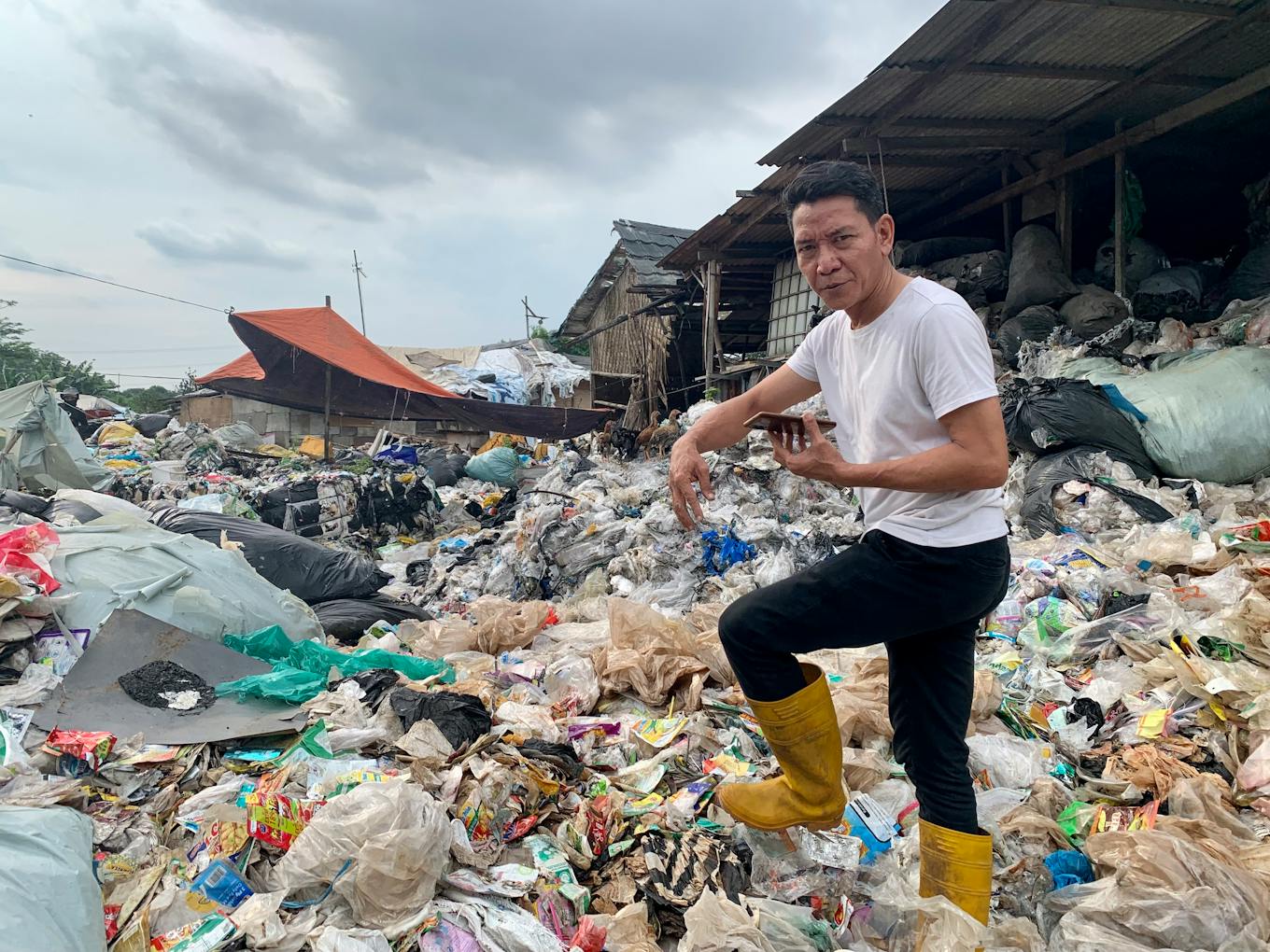
Pris Polly, manager of the Indonesian Association of Garbage Collectors in Ikatan Pemulung Indonesia, walks through a pile of unsorted rubbish in front of the sorting centre. Image: Robin Hicks/EcoBusiness
In a settlement at the foot of the landfill, the garbage collectors live in houses with iron roofs – partly made of garbage – and wash themselves with water from a municipal pipe.
The landfill does not have a geofence to prevent toxins from entering the groundwater, so it is not easy to get clean water for people on the site.
There are no proper toilet facilities, so people defecate in wood-lined latrines built over the stream that runs through the town.
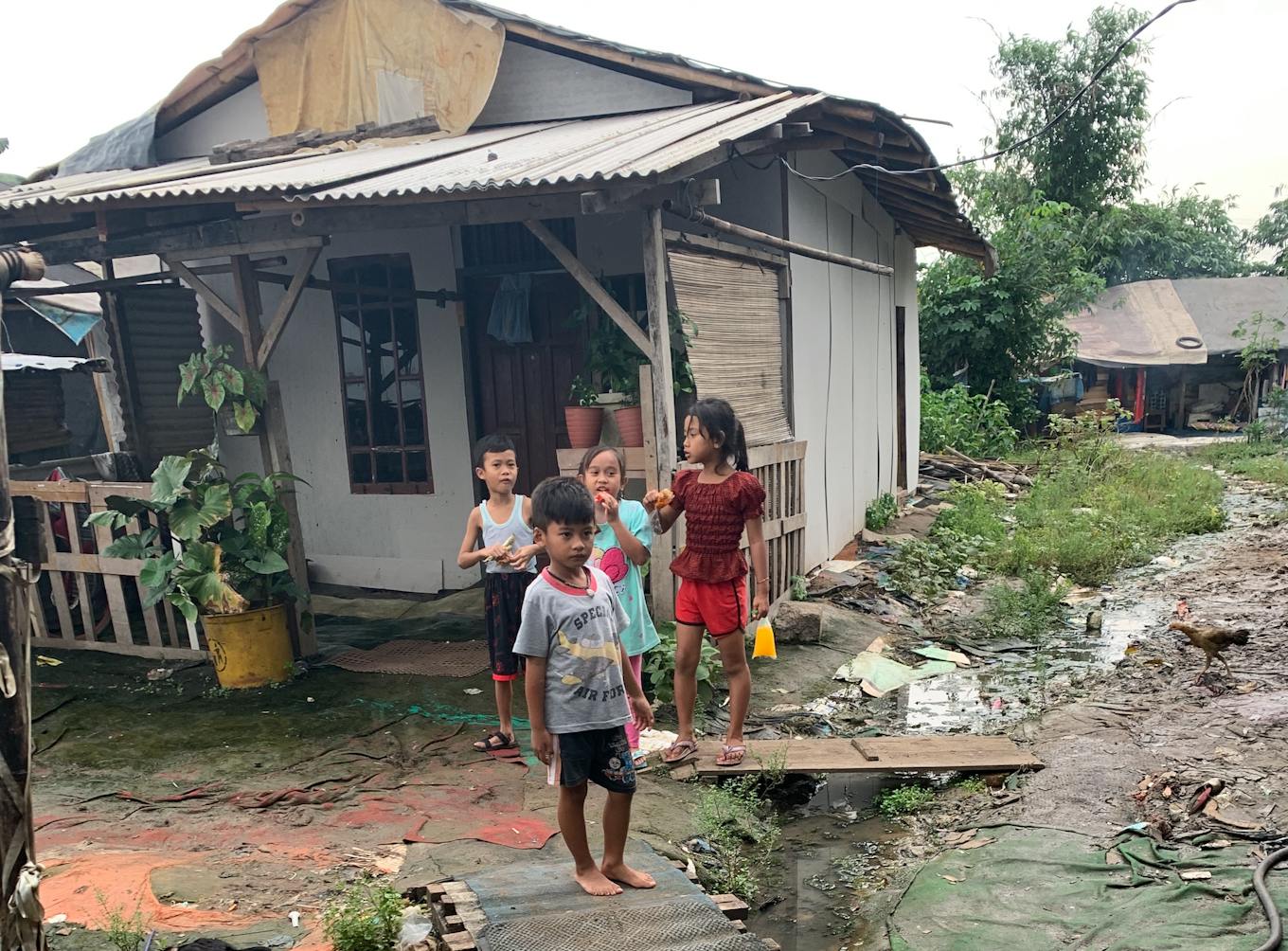
The children are standing in front of their house at the landfill. Image: Robin Hicks/EcoBusiness
Some people try to give garbage collectors a chance to get out of the landfill and find a new way of life. But most scavengers are reluctant to leave a place where they've lived rent-free all their lives.
Álvaro Aguilar leads the commercial development and logistics of the Prevented Ocean Plastic recycling program. He offered early collectors more than double the fee if they set up their own collection points outside the landfill.
"They may make more money by collecting less, but they choose to stay there," said Aguilar, who lived in a landfill in his native Mexico for a year before entering the recycling business 20 years ago.
"Some never want to leave. The place has different rules. Some get married here. The children grow up in the dump and don't know another life," she says.
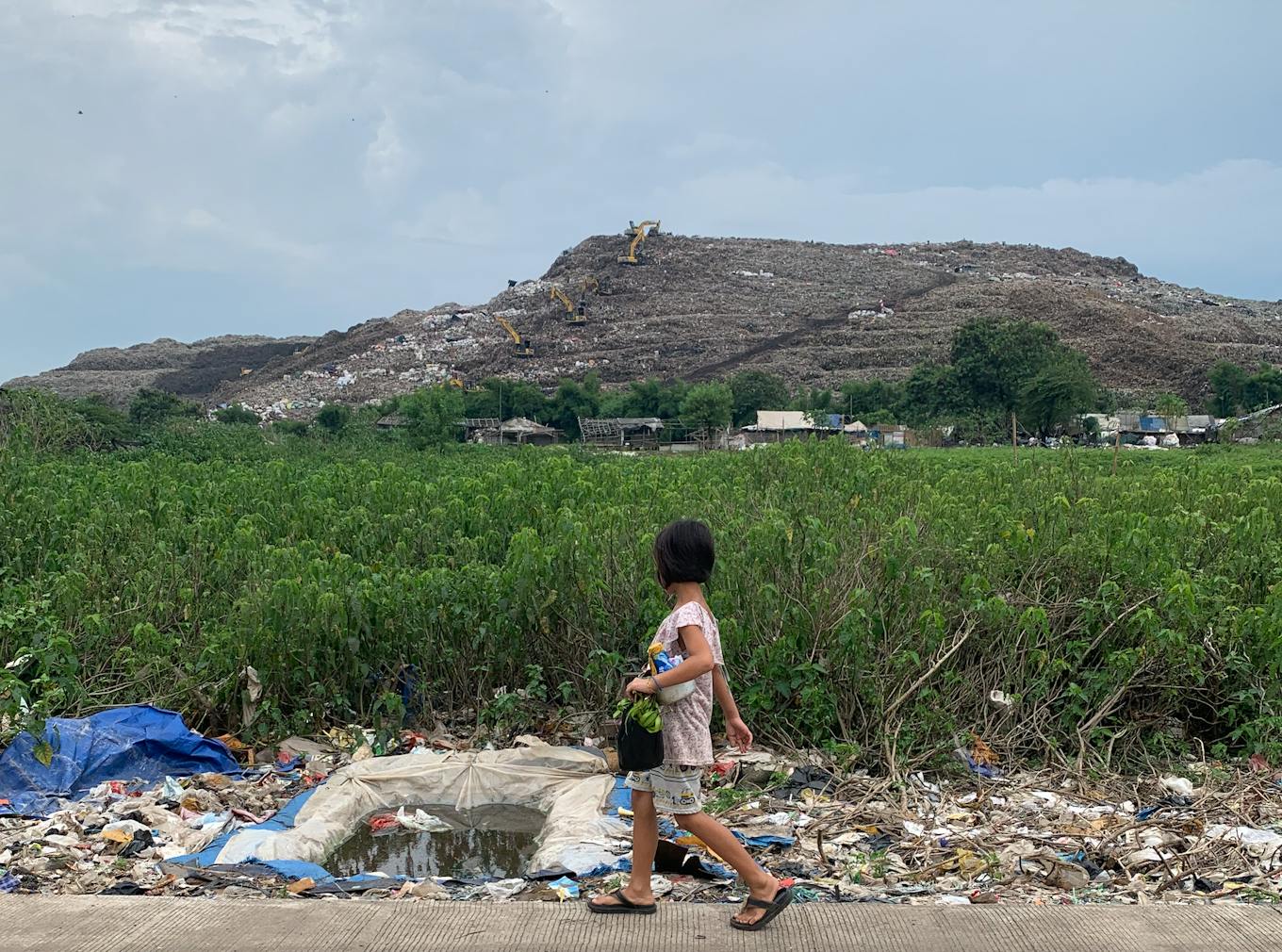
A girl walks past the Bantar Gebang garbage dump. Image: Robin Hicks/EcoBusiness
Child labor is common in the informal waste trade in Southeast Asia, and a large proportion of the recyclers at the Bantar Gebang landfill are teenagers or younger.
A Save the Children study estimated that 1,500 children work at the landfill, either as paid workers picking and sorting garbage trucks or loading and unloading garbage trucks.
These children face serious health risks and injuries, and while many children in Bantar Gebang attend school, many children drop out and often miss school.
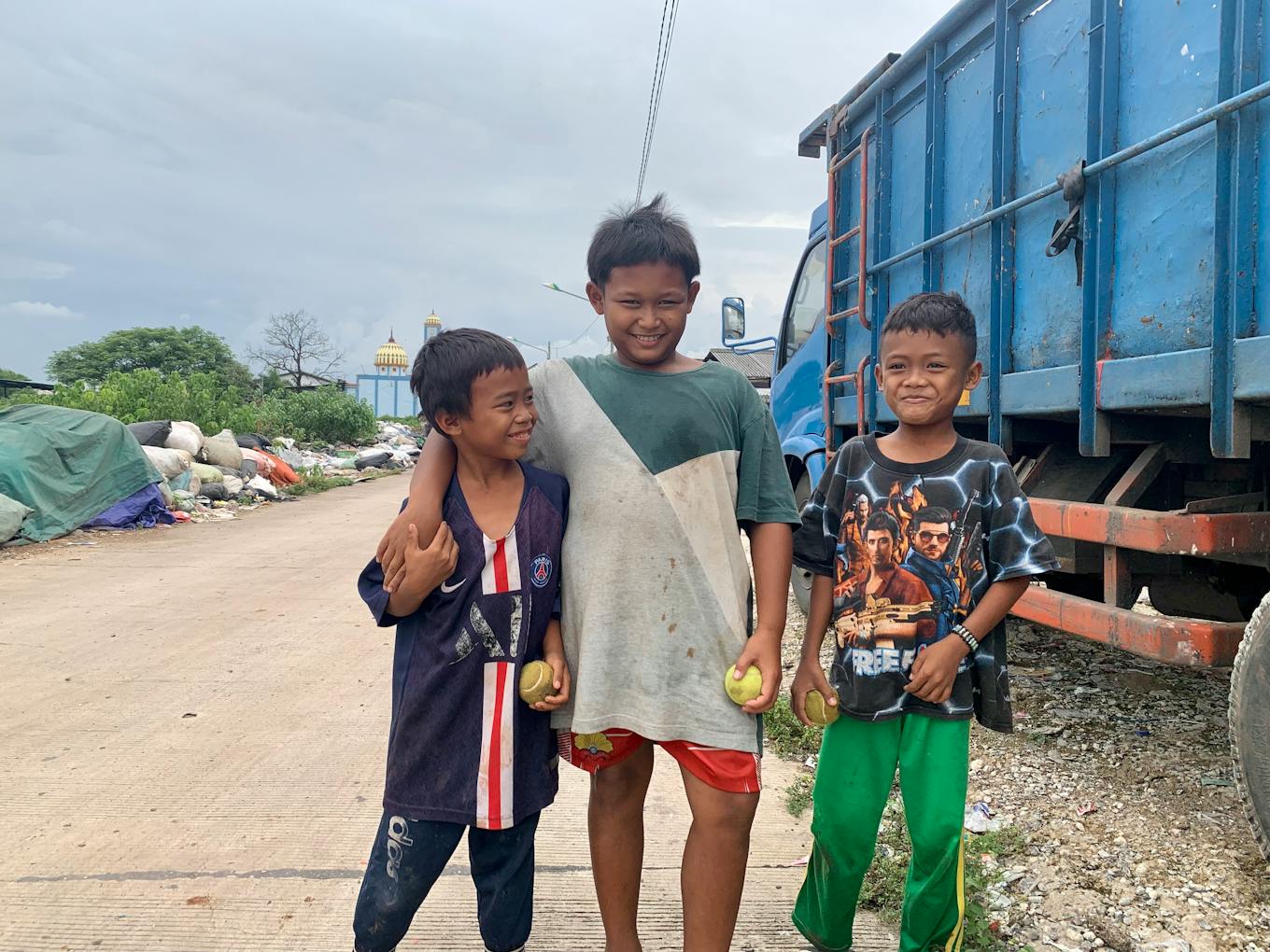
Children living around the Bantar Gebang dump. Image: Robin Hicks/EcoBusiness
Aguilar does not buy plastic from garbage collectors who collect it in landfills. "People will be encouraged to stay there," she says.
According to him, waste collectors would be better off if recycled plastic had a higher market value.
Currently, recycled plastic is much more expensive than virgin plastic, and major consumer goods companies committed to sustainability to increase the use of recycled resin are unwilling to pay the premium, Aguilar says.
"These brands don't consider the social and environmental benefits of buying recycled plastic," she says.
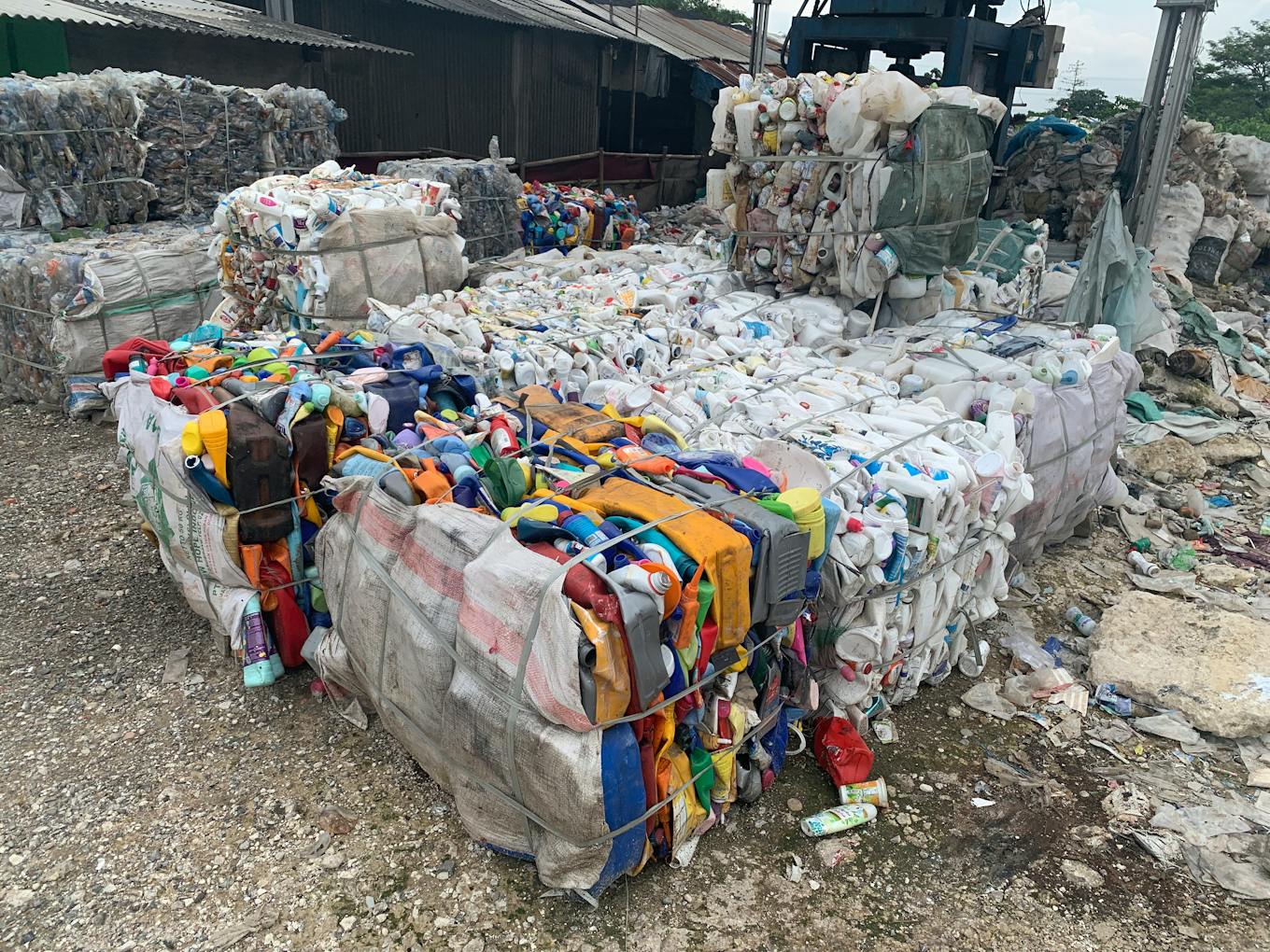
Recyclable in the pool at the foot of the Bantar Gebang Landfill. Image: Robin Hicks/EcoBusiness
The value of recycled plastic is linked to the lifetime value of waste collectors, she says.
"Society views the people who collect plastic as inferior. You don't. They do a job that deserves more respect than most: they clean up after us," she says.
"They are ashamed of how society judges them. But they shouldn't."
"They should be recognized for the crucial role they play in building a circular economy for plastics."
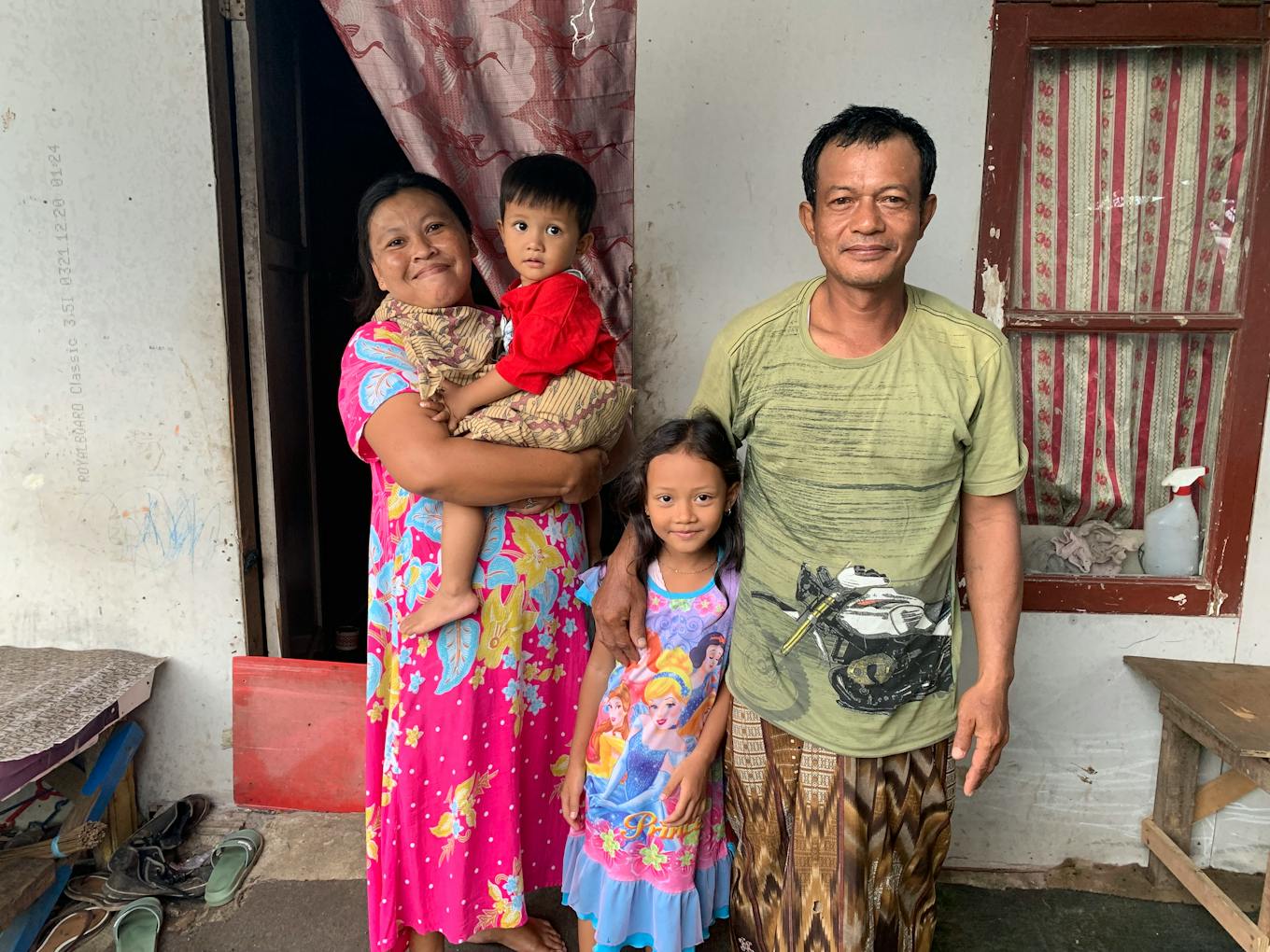
A family of plastic collectors living in the Bantar Gebang landfill. Image: Robin Hicks/EcoBusiness
In 2022, Eco-Business reported on the lives of garbage collectors in the Philippines.



